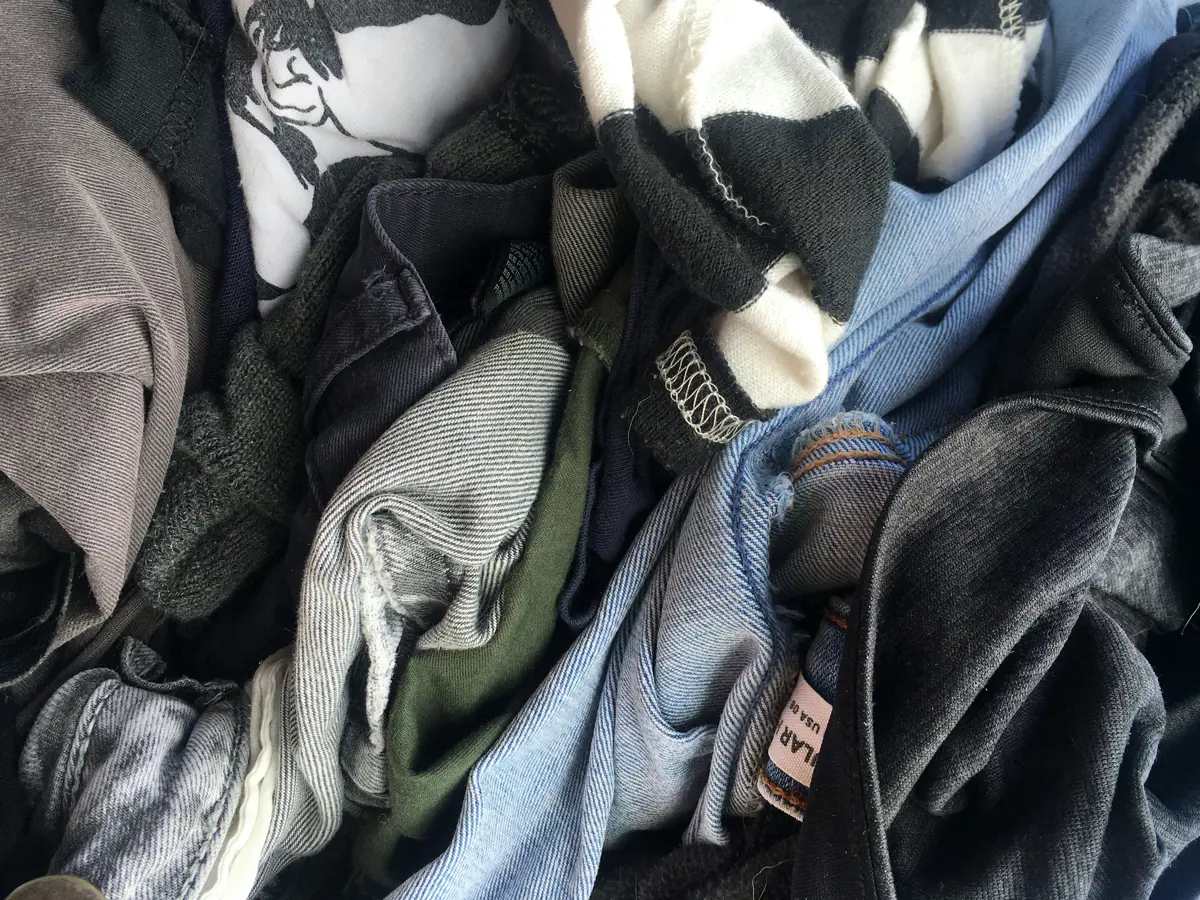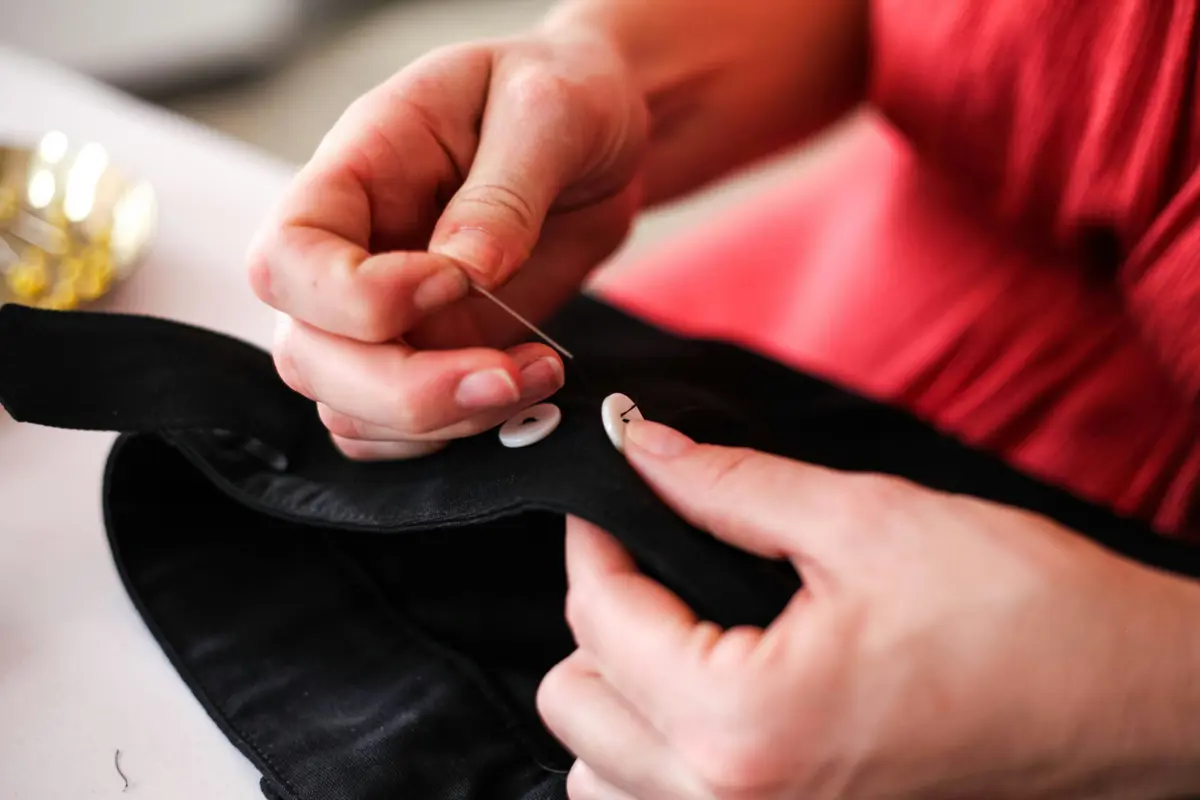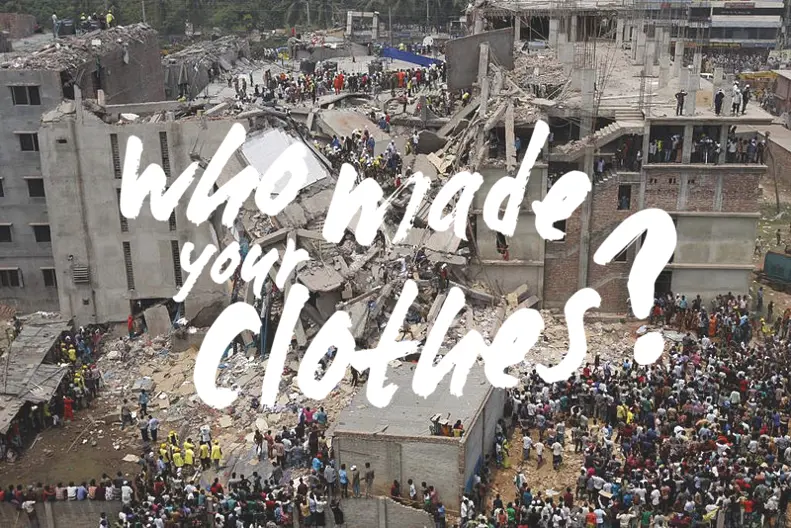Textile waste in New Zealand
Every year approximately 180,000 tonnes of clothing and textile waste is thrown away into New Zealand landfills. This is equivalent to 6429 shipping containers of waste, or 34kg each year for every person living in New Zealand

What's wrong with fast fashion?
Fast Fashion is the term used to describe the quick transition from catwalk to customer, with reduced cost and reduced quality products. Garments are not designed to last longer than a few months. In order to keep clothes affordable, they tend to be made more cheaply from synthetic materials such as polyester, acrylic, spandex and nylon. However, there is a dark side to fast fashion:
- Manufacturing these fabrics from fossil fuels creates greenhouse gases and contributes to global warming.
- Synthetic fibres take much longer to decompose than natural fibres such as cotton. Cotton takes around three months to decompose whereas polyester can take 20-200 years to break down.
- Fossil-fuel based fabrics shed microfibres when clothing is washed, and these microplastics end up in our wastewater, then in our oceans.
- Most of the people making fast fashion garments live in developing countries where environmental regulations are lax. Workers (mostly female) are often poorly paid, overworked, and exposed to dangerous environments.
- There is a lack of responsibility from producers. High levels of production and profits supersede human welfare and the fundamental rights of those people creating fast fashion for today’s throwaway society.
)
Of all the textiles manufactured each year:
- 12% are lost during manufacturing in the form of cutting and production waste,
- 75% are sent to landfill by consumers
- 12% are put back in the system through donating or recycling
- Less than 1% are regenerated into new fibre for new clothes
Environmental effects
The environmental effects of textile fibre production are highly significant worldwide. Remember that textile waste covers more than just clothing - bedding, towels and curtains create a waste problem too.
- The fashion industry is responsible for about 10% of global carbon emissions
- Water use: It can take 2,700 litres of water to produce enough cotton for one T-shirt.
- Conventional cotton farming is highly polluting: it uses 11% of the world’s pesticides, 24% of the world's insecticides, but under 3% of the world's farmland.
- Cotton is the most pesticide-intensive crop in the world. Some of these chemicals typically remain in the fabric after finishing, and are released during the lifetime of the garments.
- The pesticides that farmers use to protect textile fibres as they grow can harm non-pest wildlife, contaminate other products and endanger the farm workers and their families.
- Bleaching and then dyeing - the resulting fabric carries more toxins.
- Almost all polyester-cotton mixes (especially bed linen) and all easy care, crease resistant, permanent press cotton, are treated with toxic formaldehyde; also used for flameproofing nylon.
- Nylon manufacture creates and releases nitrous oxide, a 'greenhouse gas' 300 times more potent at warming per molecule than carbon dioxide.
- Microfibres from synthetic fabric garments detach during washing and exit with the rinsing water. Many end up in the oceans where they are collected by filter-feeding animals, although they have no food value. This pollution is now detectable globally
What can we do?
Buy natural fibres where possible. Natural fabrics in New Zealand include merino and possum wool. Other sustainable fabrics include wild silk, organic cotton, linen, hemp and lyocell. Purchase New Zealand made if you can as these products will likely have lower manufacturing and transport emissions.
Launder and care for your garments according to care labels and instructions, as this will extend the lifespan of these items. Cold water is more gentle on fabrics than hot. Overwashing synthetic fabrics will release more microfibres into our wastewater, so only wash garments as often as needed.
)
Repair clothing if you can, or upcycle your clothes to give them a new lease of life.
Buy second hand clothing.
Support businesses which are doing their best to be part of a circular economy. The Sustainable Business Network provides a “circular economy directory” which includes a Clothing and Textiles section.
Join the Fashion Revolution - a movement that aims to create a fashion industry that values people, the environment and creativity - not just profit.

Donating clothing
The following national charitable organisations may also accept clothing at their stores:
Please ensure clothing is clean. Disposing of inappropriate goods at charity stores is a huge cost to these organisations. If the textile or clothing is dirty or damaged, and especially if a synthetic fabric, dispose of it as waste to landfill.
Be wary of donating clothing to clothing bins as they are often sold by the tonne to retailers and very little goes to the charity advertised on the bin. It is much better to take donations directly to stores.
Your local council may also collect clothing at their transfer station.
Recycling in NZ
ImpacTex sorts and grades end-of-life textiles including uniforms and other garments. Items which are not suitable for donation or re-use are recycled into a new material whose applications include packaging, acoustic panelling, indoor/outdoor signage and merchandising displays. Once panels have reached end-of-life they can be returned to ImpacTex and recycled again.
Terra Lana uses wool recycled from carpet manufacturing, some new wool and polyester, to make a range of insulation products, including ceiling, wall and underfloor insulation, plumbing and acoustic insulation, weed mats and furniture-moving blankets.
Textile Products recycles textile waste into various products including household insulation, removal blankets and carpet underlay.
Retail stores which accept donations of clothing and textiles for recycling:
- Little Yellow Bird will accept worn out clothing made from 100% cotton, merino, wool, linen, hemp or silk. This includes natural fibre blends (no synthetic blends please). Natural fibre sheets, tea towels, and towels can be included. Items which cannot be re-used are recycled into other products such as pet beds, home insulation, carpet underlay, and yarns.
- Selected Icebreaker stores (in partnership with UPPAREL) will accept all clean and washed clothing from any brand, excluding underwear and socks (for hygiene reasons). Items in decent condition are donated to charitable organisations, whereas the remainder is sorted, fixtures such as buttons and zips repurposed, and the fabric recycled into new products such as cushioning, pet beds and home insulation.
- Selected Kathmandu stores (in partnership with ImpacTex) will accept old or used Kathmandu clothing items, hats, socks and shoes. If items are not suitable for donation and re-use, they will be shredded and repurposed into products such as furniture cushioning, protective packaging and pillow filling.
- AS Colour's Auckland stores accept any clean, unwanted clothing, which is then sent to ImpacTex for recycling. Bed linen (not duvet inners or pillows) and towels are also accepted.
Social Enterprise and textile recycling
Ripple Movement is a social enterprise which delivers essential clothing to children and teens living in hardship. Any donated clothing which is not suitable for gifting to families is diverted from landfill through a system of reuse, repair, repurposing and recycling.
Innovation and research in NZ
Aotearoa research practitioners connecting with industry
- Holly McQuillan’s zero waste research and practice has led to developing open-source, user-modifiable, zero waste designs – targeting clothing waste at the cutting stage.
- Jennifer Whitty is a sustainable design educator and researcher. Her social enterprise Space Between promotes an upcycled clothing line (Earthlink Apparel) that manufactures using pre and post-consumer waste– closing the loop on clothing waste.
- Donna Cleveland’s work develops and implements customised textile waste recycling and design processes as models for NZ based apparel companies.
Supporting innovation and sustainability
Mindful Fashion NZ is a not-for-profit organisation which supports sustainable fashion and textiles in New Zealand. Its annual awards recognise businesses which reduce waste, use sustainable materials and processes in their textiles, and whose business model promotes a circular economy. Mindful Fashion’s Circular Design Awards celebrate innovation, and winners include Untouched World, whose Rubbish Socks are made from recycled, shredded knit waste combined with merino fibre.
